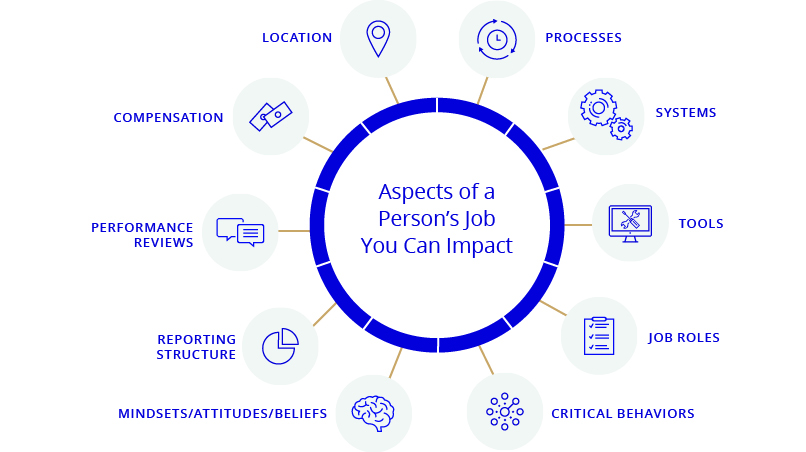
If you are interested to become a contract managers, consider getting a certificate on contracts management. There are many options to choose from. Weber State University's CCCM/CPCM program is a good choice. This program has a proven track record. Its instructors have extensive experience working in defense and US Federal governments. In fact, it was ranked #17 in the country in contract management in 2013. WSU offers an MBA program that includes a certificate in contract management.
CPCM
The CPCM certificate (certificate in contracts management) is a credential that is internationally recognized for professionals in this area. This credential requires passing an exam to demonstrate a thorough understanding of all aspects and aspects of contract management. It is offered by the NCMA and demonstrates professional competence and a deep understanding of the field. This certification allows individuals to be respected by their employers and peers. Click on the logo to download a brochure detailing the program for professionals.
The core principles and practices of supply management, procurement, vendor partnership are all covered by CPCM courses. They cover all aspects of the procurement process, including cost management, negotiation, conflict management, and the steps involved in the purchase process. Other topics include business ethics, services purchasing, capital purchasing, and critical materials management.
CCCM
This professional certification will distinguish you from your peers. This certification is based on a rigorous examination and will demonstrate your commitment to commercial excellence. The program usually takes between six and nine weeks to complete. The NCMA certification criteria apply and the passing score of 70% is required for certification. You score the exam by adding up your points for each question.

The CCCM certificate demonstrates a solid understanding of contract management as well as the Uniform commercial code. The certification gives you the skills and knowledge to succeed in the industry. CCCM Training includes detailed descriptions of each type of contract and the principles of managing them. After passing the exam successfully, you will be qualified to perform contract management duties on behalf your company.
CBCS
The CBCS certificate is in contract management. This certification allows students to have a deep understanding of contract management. The course covers the full spectrum of contracting, from preparation to implementation, and will provide students with the foundation for further contracting studies. Those seeking to advance their career will find that the course is a great choice.
Earning the CBCS Certification has many advantages. This certification will allow you to show that you are competent in managing contracts in the commercial sector. A scaled score of at least 390 is required to pass the exam.
Villanova University
The Villanova University Certificate in Contracts Management program was developed to meet the needs of the modern-day contracts manager. The program is a mix of online and classroom learning. The program equips students with the necessary skills to become competitive, efficient, and ethical in their chosen profession. The NCMA's latest Body of Knowledge is used in the program.
The industry-recognized faculty in the field contract management will teach the certificate program. It offers both buyer and seller perspective training and comprehensive knowledge in commercial and government contract management. Additionally, students learn about cost containment and risk control, which are crucial to the successful management of contracts. The curriculum is designed to prepare students for the National Contract Management Association (NCMA) certification exam.

University of Alabama Huntsville
The University of Alabama Huntsville certificates in contracts management prepare graduates for jobs in the public or private sectors. The program provides basic knowledge in contract management and includes negotiation and bidding. Graduates will be qualified for positions in both Department of Defense and civilian agencies. They will also learn to use databases such the Federal Acquisition Regulation and Defense Acquisition Regulation Supplement (DFARS), which allow them to evaluate and plan acquisition strategies.
The University of Alabama Huntsville offers this certificate program. Students are able to attend night classes. The program focuses primarily on federal contract acquisition. It teaches students not only the basics of federal contract procurement but also cost analysis and accounting. The certificate is also transferable to a master's program. UAH boasts over 6,000 undergraduates and an accredited program. The school is highly valued for its academics and diversity. Alabama University is third in Alabama's best universities.
FAQ
What are the key management skills?
Any business owner needs to be able to manage people, finances, resources and time. These skills include the ability manage people, finances and resources as well as other factors.
These skills are necessary for setting goals and objectives as well as planning strategies, leading groups, motivating employees and solving problems.
As you can see, there's no end to the list of managerial duties!
What is the difference between TQM and Six Sigma?
The main difference between these two quality management tools is that six sigma focuses on eliminating defects while total quality management (TQM) focuses on improving processes and reducing costs.
Six Sigma is a methodology for continuous improvement. It emphasizes the elimination and improvement of defects using statistical methods, such as control charts, P-charts and Pareto analysis.
This method has the goal to reduce variation of product output. This is done by identifying and correcting the root causes of problems.
Total quality management includes monitoring and measuring all aspects of an organization's performance. It also includes training employees to improve performance.
It is often used to increase productivity.
How can a manager improve his/her managerial skills?
Through demonstrating good management skills at every opportunity
Managers should monitor the performance and progress of their subordinates.
You should immediately take action if you see that your subordinate is not performing as well as you would like.
It is important to be able identify areas that need improvement and what can be done to improve them.
What are the five management steps?
Each business has five stages: planning, execution and monitoring.
Planning involves setting goals for the future. This includes setting goals for the future and defining what you want.
Execution is when you actually execute the plans. It is important to ensure that everyone follows the plans.
Monitoring is the process of evaluating your progress toward achieving your objectives. This should involve regular reviews of performance against targets and budgets.
Reviews take place at the end of each year. They provide an opportunity to assess whether everything went well during the year. If not then, you can make changes to improve your performance next year.
Following the annual review, evaluation is done. It helps to determine what worked and what didn’t. It also provides feedback on how well people performed.
What does the term "project management” mean?
It refers to the management of activities related to a project.
Our services include the definition of the scope, identifying requirements, preparing a budget, organizing project teams, scheduling work, monitoring progress and evaluating the results before closing the project.
What are the 3 main management styles?
There are three types of management: participative, laissez faire, and authoritarian. Each style has its own strengths and weaknesses. Which style do you prefer? Why?
Authoritarian – The leader sets a direction and expects everyone follows it. This style works best in large organizations that are stable and well-organized.
Laissez-faire – The leader gives each individual the freedom to make decisions for themselves. This style is most effective when the organization's size and dynamics are small.
Participative: The leader listens to everyone's ideas and suggestions. This approach works best in small organizations where everyone feels valued.
What is the difference in a project and program?
A program is permanent while a project can be temporary.
A project is usually defined by a clear goal and a set deadline.
It is often done in a team that reports to another.
A program usually has a set of goals and objectives.
It is usually implemented by a single person.
Statistics
- The average salary for financial advisors in 2021 is around $60,000 per year, with the top 10% of the profession making more than $111,000 per year. (wgu.edu)
- The profession is expected to grow 7% by 2028, a bit faster than the national average. (wgu.edu)
- Our program is 100% engineered for your success. (online.uc.edu)
- 100% of the courses are offered online, and no campus visits are required — a big time-saver for you. (online.uc.edu)
- Your choice in Step 5 may very likely be the same or similar to the alternative you placed at the top of your list at the end of Step 4. (umassd.edu)
External Links
How To
How do you apply the 5S at work?
The first step to making your workplace more efficient is to organize everything properly. An organized workspace, clean desk and tidy room will make everyone more productive. The five S's, Sort, Shine. Sweep. Separate. and Store, work together to make sure that every inch of space can be used efficiently and effectively. In this session, we'll go through these steps one at a time and see how they can be implemented in any type of environment.
-
Sort. Get rid of clutter and papers so you don't have to waste time looking for the right item. This means that you should put things where they are most useful. You should keep it close to the area where you research or look up information. You should also consider whether you really need to keep something around -- if it doesn't serve a useful function, get rid of it!
-
Shine. Keep your belongings tidy and organized so you can spend less time cleaning up afterwards. Don't leave anything that could damage or cause harm to others. You might have many pens and need to put them away. It could be worth investing in a penholder. Pens won't get lost anymore.
-
Sweep. To prevent dirt buildup on furniture and other items, clean them regularly. You may want to invest in some dusting equipment to ensure that all surfaces are as clean as possible. To keep your workspace tidy, you could even designate a particular area for dusting and cleaning.
-
Separate. It will help you save time and make it easier to dispose of your trash. Trash cans are usually placed strategically throughout the office so that you can easily throw out the garbage without searching for it. To make sure you use this space, place trash bags next each bin. This will save you the time of digging through trash piles to find what your looking for.